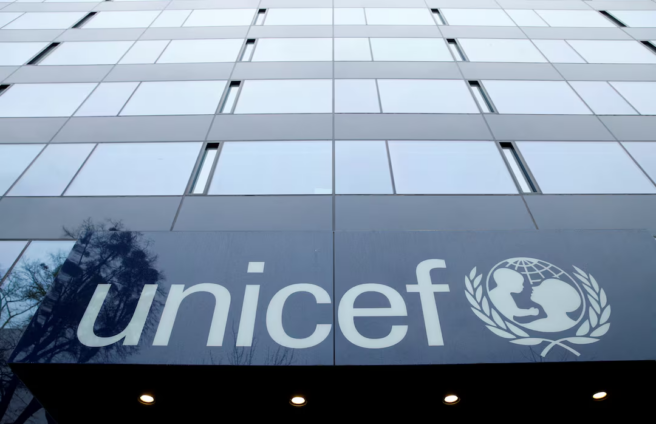The United Nations children's agency said on Friday it will run out of its supply of lifesaving food to treat children suffering from acute forms of malnutrition in Ethiopia and Nigeria within the next two months. due to a lack of funding exacerbated by Trump administration cuts to foreign aid.
Some 1.3 million children under five suffering from severe acute malnutrition risk losing access to lifesaving support this year in Ethiopia and Nigeria, UNICEF says.
"Without new funding, we will run out of our supply chain of Ready-to-Use-Therapeutic-Food by May, and that means that 70,000 children in Ethiopia that depend on this type of treatment cannot be served," Kitty Van der Heijden, UNICEF's deputy executive director, told reporters in Geneva via video link from Abuja on Friday. "Interruption to continuous treatment is life-threatening."
In Nigeria, UNICEF said it may run out of supplies to feed 80,000 malnourished children as soon as the end of this month. Van der Heijden described recently being in a hospital in Maiduguri with a child who was so malnourished that her skin was falling off.
International donors have in recent years reduced contributions to UN agencies, including UNICEF. Its funding woes were accelerated when the United States, its top donor, imposed a 90-day pause on all U.S. foreign aid on the first day of President Donald Trump's return to the White House in January.
That action, and ensuing orders halting many programmes of the U.S. Agency for International Development worldwide, have jeopardised the delivery of lifesaving food and medical aid, throwing into chaos global humanitarian relief efforts.
"This funding crisis will become a child survival crisis," warned Van der Heijden, adding that the sudden nature of the cuts did not give the agency the ability to mitigate the risks.
Funding cuts have also hit health programmes offering nutrition and malaria care for pregnant women and children in Ethiopia.
Twenty-three mobile health clinics were taken out of operation in the region of Afar, with only seven left operating due to funding cuts, according to UNICEF.
Latest Stories
-
Gold Board initiative yields $3 billion economic boost in 4 months – Kwakye Ofosu reveals
2 hours -
Kwakye Ofosu reveals money saved from paid TV ban at Jubilee House
3 hours -
14 Years of production: Ghanaians see oil as neither blessing nor curse — Research
3 hours -
Judge orders Columbia student Mahmoud Khalil released on bail
4 hours -
Dr. Peter Terkper declares GNAFF Presidency bid with bold vision
4 hours -
Teenage pregnancy declines in Akatsi North as leaders call for sustained action
5 hours -
NIB, NACOC destroy $350m worth of cocaine following court order
6 hours -
Keta-Akatsi Catholic Diocese honours health workers at 33rd World Day of the Sick
6 hours -
Suspect arrested for burglary and theft at Kasoa Nyayano
6 hours -
US resumes visas for foreign students but demands access to social media accounts
6 hours -
Indian High Commission collaborates with VRCC and UHAS to champion physical, mental wellness in Volta Region
6 hours -
This Saturday on Newsfile: Galamsey fury, NPP early primaries and effects of Israel-Iran war
7 hours -
African Heads of States, Caribbean and Global Business Leaders to gather in Abuja Nigeria for 32nd Afreximbank annual meetings
8 hours -
GES, Brilliant Educational Consult train teachers in Kumasi to boost their competencies
8 hours -
DIPPER Lab launches IoT Training Programme to equip students with practical tech skills
8 hours

